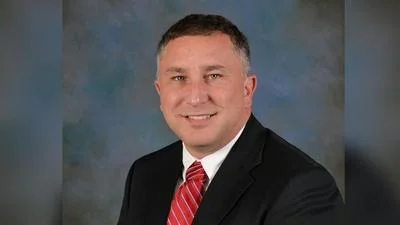Paul Boron and his mother | Illinois Policy Institute
Paul Boron and his mother | Illinois Policy Institute
A 13-year-old Manteno Middle School student is being made to suffer under a revamped version of an old eavesdropping law "nearly as bad as the old one" that was struck down by the state Supreme Court as unconstitutional more than four years ago, a Chicago-based think tank recently reported.
Paul Boron faces a charge of felony eavesdropping "that could change the course of the rest of his life," the Illinois Policy Institute reported Thursday, June 21. "His story stands as another chapter of controversy surrounding an eavesdropping law some experts have criticized as ripe for abuse and misapplication."
The charge against the teenager is derived from legislation passed by the state General Assembly and signed by then-Gov. Pat Quinn in an attempt to make recording someone without their consent illegal again in Illinois shortly after the state Supreme Court ruled it wasn't.

Former Illinois Gov. Pat Quinn
In March 2014, the Illinois Supreme Court ruled unanimously in two separate cases, People v. Clark and People v. Melongo that Illinois' eavesdropping statute, previously amended in 1994, violated the First Amendment and criminalized recording conversations without the consent of all parties. "Understandably, many people do not want their voices broadcast to others or on the Internet to be heard around the world," the high court ruled in Melongo.
"But, to a certain extent this is beyond our control, given the ubiquity of devices like smart phones, with their video and audio recording capabilities and the ability to post such recordings instantly to the Internet. Illinois’ privacy statute goes too far in its effort to protect individuals’ interest in the privacy of their communications. Indeed, by removing all semblance of privacy from the statute in the 1994 amendments, the legislature has 'severed the link between the eavesdropping statute’s means and its end'. The statute therefore burdens substantially more speech than is necessary to serve the interests the statute may legitimately serve."
Later in the year, the Illinois General Assembly voted on Senate Bill 1342, which passed overwhelmingly, 106-7 in the House and 46-4-1 in the Senate.
"The new version is nearly as bad as the old one," the Illinois Policy Institute reported at the time.
The legislation was signed into law by then outgoing Gov. Quinn as one of his last official acts in 2014, despite calls for him to veto the bill.
The charge against Boron under that law stems from a conversation he had in the principal's office at Manteno Middle School on Feb. 16 after he allegedly failed to attend a number of detentions, according to the Illinois Policy Institute's report.
"Before meeting Principal David Conrad and Assistant Principal Nathan Short, he began recording audio on his cell phone," the report said. "Boron said he argued with Conrad and Short for approximately 10 minutes in the reception area of the school secretary's office, with the door open to the hallway. When Boron told Conrad and Short he was recording, Conrad allegedly told Boron he was committing a felony and promptly ended the conversation."
A couple of months later, Boron was charged with a single count of eavesdropping, a class 4 felony in Illinois.
Boron's case and that of others charged under the revised law again raises questions in the debate about when anyone has a "reasonable" expectation of privacy and whether it is fair to expect Illinois residents "to know where to draw that line in their everyday lives," the Illinois Policy Institute report said.
"Given the zeal with which Illinois prosecutors have enforced the state's eavesdropping law, reform from the Statehouse may be Boron’s best hope," the Illinois Policy Institute report said.






 Alerts Sign-up
Alerts Sign-up